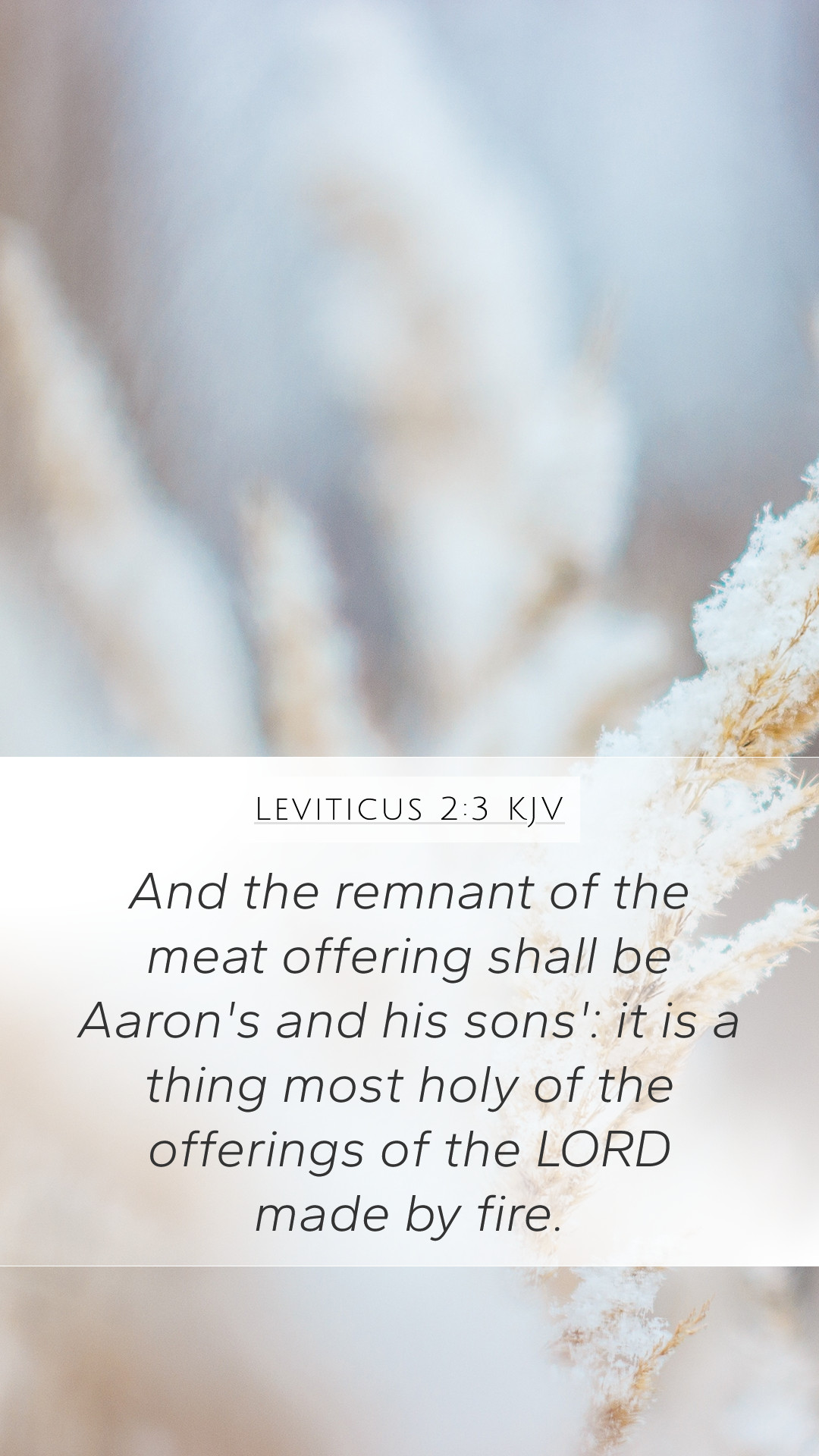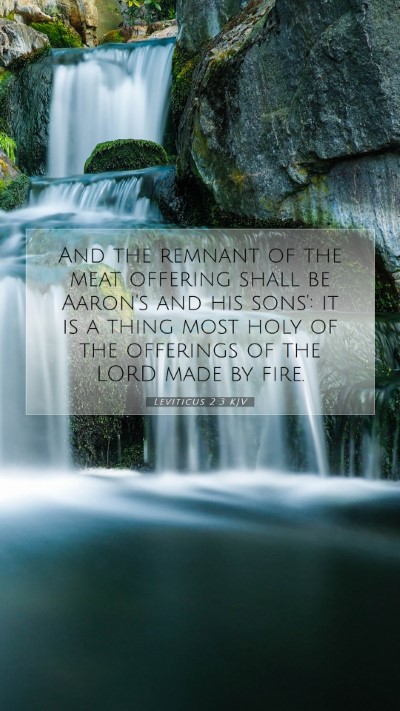Understanding Leviticus 2:3: An In-Depth Bible Verse Commentary
Bible Verse: Leviticus 2:3
Verse: "And the remainder of the meat offering shall be Aaron's and his sons': it is a thing most holy of the offerings of the LORD made by fire." (KJV)
Overview of Leviticus
The Book of Leviticus contains detailed instructions regarding the laws for sacrifices and offerings, which were crucial for the Israelites in establishing their covenant relationship with God. This particular verse discusses the meat offering, which is a type of offering that was made in worship and gratitude to God.
Meaning of Leviticus 2:3
This verse emphasizes the holiness of the portions of offerings that were designated for the priests. According to renowned commentators:
- Matthew Henry: Henry notes that the meat offering symbolizes a dedication to God. The remainder signifies that the fruits of labor and dedication are also to be enjoyed by those set apart for God’s service (the priests). This reflects God's provision for His ministers and their work in the temple.
- Albert Barnes: Barnes highlights the importance of offerings in demonstrating one’s gratitude and devotion to God. He points out that the portions reserved for the priests underline the connection between worship and sustenance, suggesting that ministry should be supported by the congregation’s offerings.
- Adam Clarke: Clarke remarks that the term "most holy" conveys a sense of utmost reverence. He elaborates that the priests, as mediators between God and the people, have a duty to handle these offerings with care and respect, acknowledging their sacredness.
Key Themes from Commentaries
1. Divine Provision: The verse illustrates how God provides for those who serve Him, ensuring that the priests are sustained through the offerings brought by the people.
2. Sacredness of Offerings: The distinction between what is holy and common is significant in Levitical law. This verse reflects the idea that some offerings are set apart for God, signifying their importance in worship.
3. Community Responsibility: The sharing of the meat offering emphasizes the communal aspect of worship, where the congregation participates in God’s work through their contributions.
Historical Context
To understand Leviticus 2:3, one must consider the historical context in which the Israelites were forming their identity as a people set apart for God. The laws regarding offerings were foundational to their worship and relationship with God.
Application in Daily Life
While Leviticus 2:3 pertains to the Old Testament sacrificial system, its principles can still be applied today:
- Expressing Gratitude: Just as the Israelites presented offerings as acts of thanksgiving, modern believers can find ways to express gratitude to God through service and giving.
- Supporting Ministry: This verse serves as a reminder of the importance of supporting those who dedicate their lives to ministry, ensuring they are cared for through the contributions of the congregation.
- Recognizing Holiness: Emphasizing the sacred aspect of worship encourages believers to approach God with reverence and acknowledgment of His holiness.
Related Bible Cross References
- Exodus 29:27-28 - The priest’s portion of offerings.
- Numbers 18:8-12 - The right of the priests to receive offerings.
- Deuteronomy 18:1-5 - The support for the Levites.
Conclusion
Leviticus 2:3 encapsulates essential themes of divine provision, communal responsibility, and the sacred nature of offerings. Through careful study and reflection on this passage, one can gain deep insights into the principles of worship and ministry, guiding modern believers in their spiritual journey.


